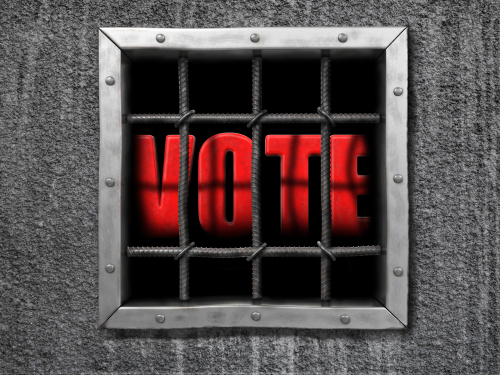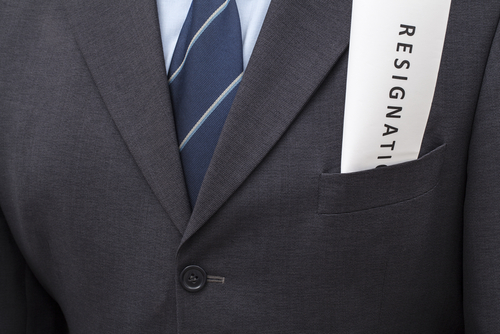Lifetime voting ban for felony convictions isn't punishment, 5th Circuit says in Eighth Amendment challenge

A lifetime ban on voting by people convicted of some felonies in Mississippi does not constitute cruel and unusual punishment, a federal appeals court ruled last week in an en banc opinion. (Image from Shutterstock)
A lifetime ban on voting by people convicted of some felonies in Mississippi does not constitute cruel and unusual punishment, a federal appeals court ruled last week in an en banc opinion.
In a 13-6 decision, the 5th U.S. Circuit Court of Appeals at New Orleans found that the Mississippi constitutional provision known as Section 241 does not violate the Eighth Amendment of the U.S. Constitution.
“The plaintiffs’ Eighth Amendment contention must fail because felon disenfranchisement is not a punishment, much less cruel or unusual,” the appeals court said in the majority opinion by Judge Edith Jones.
Rather than imposing a punishment, Section 241 serves “a nonpenal, regulatory purpose,” Jones said.
The 5th Circuit ruled after vacating a contrary decision by a 5th Circuit panel issued in August 2023.
The Mississippi Clarion Ledger, the Associated Press and Law Dork are among the publications with coverage of the July 18 decision, noted by How Appealing.
Section 241 imposes a lifetime voting ban after convictions for “murder, rape, bribery, theft, arson, obtaining money or goods under false pretense, perjury, forgery, embezzlement or bigamy.”
In her majority opinion, Jones cited a 1974 U.S. Supreme Court decision, Richardson v. Ramirez, which upheld a voting ban for some California felons in an equal protection challenge.
She also noted that the Supreme Court rejected an “avant-garde interpretation of the Eighth Amendment” in June when it held that a ban on sleeping or camping on public property is not cruel and unusual punishment.
“The paramount lesson of the Constitution and Richardson is that the changes sought by plaintiffs here can and must be achieved through public consensus effectuated in the legislative process, not by judicial fiat,” Jones wrote.
Ten judges joined Jones’ majority opinion, while two others concurred in the judgment.
The plaintiffs challenging the ban were represented by the Southern Poverty Law Center and Simpson Thacher & Bartlett, according to a July 18 press release.
The disenfranchisement scheme “is one of the cruelest in the nation,” according to the press release.
Mississippi is one of only 15 states with a lifetime ban on voting following some kinds of convictions and only one of two states with a lifetime ban on voting for first-time felons, according to the Mississippi Clarion Ledger and Law Dork. Four of the 15 states impose the ban only for election-related offenses.
The case is Hopkins v. Watson.
Write a letter to the editor, share a story tip or update, or report an error.



